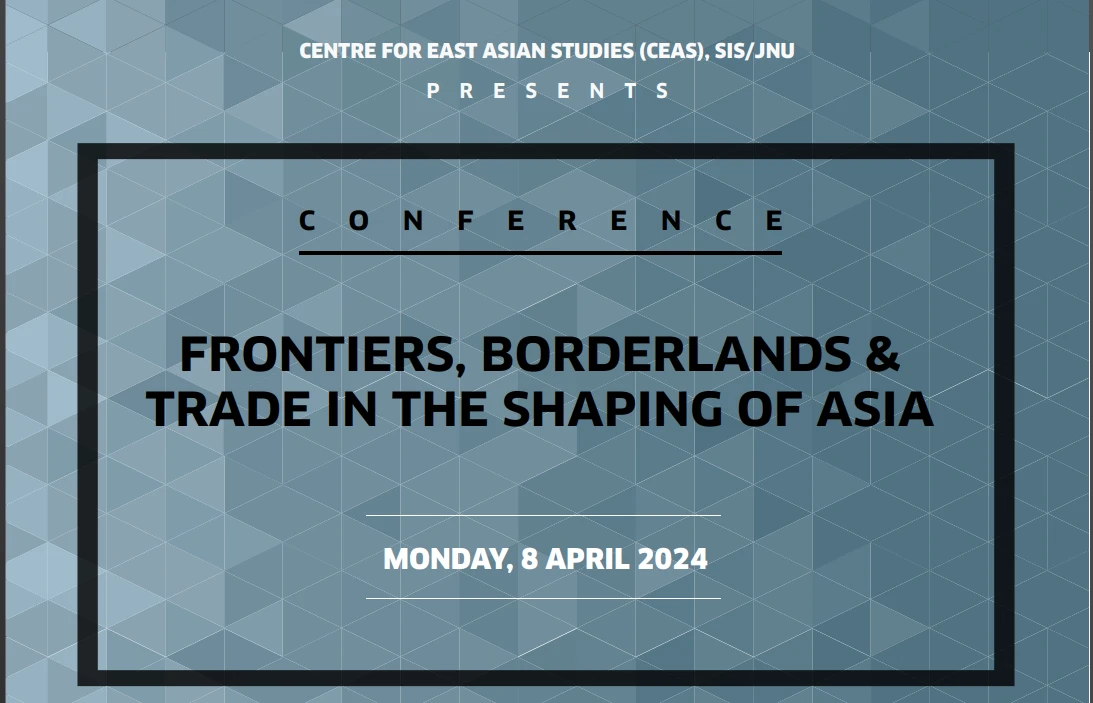CEAS(JNU)- CHS (SNIoE) Conference | FRONTIERS, BORDERLANDS & TRADE IN THE SHAPING OF ASIA
The Centre of Excellence for Himalayan Studies, Shiv Nadar IoE and the Centre For East Asian Studies (CEAS), SIS/JNU are jointly organising a conference on the theme “Frontiers, Borderlands & Trade In The Shaping Of Asia " on 08 April 2024, at the India International Center (IIC)
Concept Note
Asia's vast and diverse landscapes have a history deeply intertwined with its frontiers and borderlands, which have been conduits for trade, cultural exchange, and geopolitical dynamics. The fluidity and motion of trade along the frontiers and borderlands have significantly altered Asian countries’ relations within the regions and beyond. Frontiers and borderlands studies have emerged today as an exciting field of inquiry among scholars because of their potential influence in shaping local, regional, and global relations, with trade being one of the keys. Additionally, border studies have developed into a multidisciplinary field of study.
This conference embraces a multidimensional approach, and factors like identity, trade, socio- economic ties, and cultural exchange will be discussed under the broader rubric of historical connections, the impact of colonialism, and the role of fixed boundaries in defining relations among neighbours and of fluid borders in a globalised world. Discussions will also extend to future challenges and opportunities, including the effects of migration, technological advancements, and cultural hybridisation. The conference aims to generate valuable insights and foster interdisciplinary collaboration in analysing Asia's frontiers and borderlands by convening experts from diverse backgrounds. This comprehensive exploration aims to shed light on the region’s historical and evolving nature and will provide crucial perspectives for addressing the complex socio-economic and political dynamics shaping Asia's landscape. Understanding these factors is essential for navigating the region's intricate geopolitics landscapes and harnessing these borderlands' potential for positive regional and global interactions.

Share this: